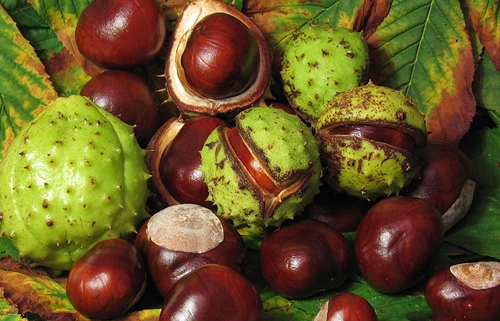The Benefits of Horse Chestnut Extract For Skin
If you’ve ever wondered about the benefits of horse chestnut extract for skin, you’re not alone. This tree is an amazing source of antioxidants and has many other benefits as well. Its saponins, known as aescin and escin, are particularly beneficial for the skin. These compounds are known to increase the pressure of blood flow through the veins and strengthen the connective tissues surrounding the capillary system.
Among the benefits of horse chestnut seed extract for skin include the ability to reduce the appearance of wrinkles and improve the health of the capillaries. Horse chestnut seeds contain flavonoids, kaempferol derivatives, proanthocyanidins, and sterols. In addition, horse chestnut seeds contain significant amounts of starch. However, despite their many benefits, some people may be skeptical of the extract.
The extract is extracted from the seeds of Aesculus hippocastanum. The compound escin in horse chestnut seeds exhibits anti-inflammatory and antioxidant activity. Studies have shown that escin reduces the appearance of edema and inflammation, and the herb is also effective in the treatment of varicose veins. Among the other benefits of horse chestnut extract for skin, it is rich in emollients, which are known to protect capillaries and ease the symptoms of edema.
Another benefit of horse chestnut seeds extract for skin is its antioxidant and photoprotective properties. Horse chestnut seeds extract is produced from the seeds of Aesculus hippocastanum L. It is known to activate the blood circulation and improve the function of capillary walls. The recommended use level is 0.5 to 5.0%. If you’re interested in using horse chestnut extract for skin care, you’ll want to consult a skincare professional or physician.
Aescin, a constituent of horse chestnut seed extract, has numerous medicinal properties. Among them are anti-inflammatory and oedematous properties, as well as positive effects on blood coagulability and venous tone. Several in vitro and in vivo studies have confirmed these properties of the extract. These investigations have confirmed the safety of horse chestnut seed extract preparations. Moreover, the active ingredients in horse chestnut seed extract have been studied for more than 40 years and have shown promising results in a variety of health conditions.
A recent study has suggested that horse chestnut seed extract is an effective treatment for CVI (chronic venous insufficiency), a condition where the veins cannot return blood efficiently to the heart. It was found to decrease the swelling and pain associated with CVI in one group of patients. The extract can be taken orally in a liquid or tablet form to help reduce symptoms of the condition. In addition to skin conditions, horse chestnut seed extract can be applied to the legs to reduce the appearance of varicose veins.
Horse chestnut extract is a powerful ingredient in skincare products. It has anti-inflammatory, soothing, and toning effects. The horse chestnut oil is gathered in autumn and is used to nourish skin. Its calming and toning properties make it ideal for sensitive skin.
One of the benefits of horse chestnut extract is its ability to improve blood circulation in the skin. It supports blood flow, improves the function of capillary walls, and reduces the appearance of wrinkles. It is also used to treat hemorrhoids and relieve leg cramps. In fact, horse chestnut extract has anti-inflammatory properties that have been used in skin care products for centuries. A recent study found that horse chestnut seed extract significantly improved symptoms in people suffering from hemorrhoids.
The benefits of horse chestnut extract for skin go well beyond its saponins. In addition to antibacterial and antiviral properties, it contains numerous flavonoids that aid in wound healing and prevent oedema. In fact, a study published in 1999 stated that the extract had the highest antioxidation potential of all plants tested, surpassing vitamin E. Another study in 1995 compared horse chestnut extract’s antioxidant power with that of vitamin C and vitamin E.
The main compound in horse chestnut extract is escin saponin, which protects the skin’s hyaluronic acid content. The escin saponin complex inhibits another enzyme known as hyaluronidase, which breaks down hyaluronic acid. However, it is unknown which of the several compounds in horse chestnut extract are responsible for the effects. In any case, the whole plant is likely to have more powerful effects than any of its individual compounds.
- Dandelion Extract: What It Is, Benefits, Uses and Side Effect - April 23, 2024
- Is Berberine Extract Help For Weight Loss? - April 11, 2024
- Why Is Pysllium Husk Powder A Popular Meal Replacement Ingredient? - April 3, 2024



